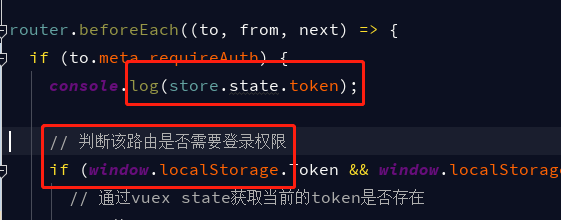可以将文章内容翻译成中文,广告屏蔽插件可能会导致该功能失效(如失效,请关闭广告屏蔽插件后再试):
问题:
I installed rbenv according to the github directions. I am running OSX but I have tried this on a Ubuntu 12.04 VM and got the same results. The following is what i get in my terminal when I try to change ruby versions:
rbenv versions
* 1.9.3-p0 (set by /Users/user/.rbenv/version)
1.9.3-p125
rbenv global
1.9.3-p0
rbenv rehash
ruby -v
ruby 1.8.7 (2011-12-28 patchlevel 357) [universal-darwin11.0]
which ruby
/usr/bin/ruby
Anyone have any ideas as to why rbenv isn't switching the ruby version like it thinks it is? Also there is no .rbenv file in the local directory that would be causing the ruby version to default to 1.8.7
rbenv local
rbenv: no local version configured for this directory
回答1:
Check that PATH contains $HOME/.rbenv/shims and $HOME/.rbenv/bin
$ env | grep PATH
Also check that you have the following in your ~/.bash_profile if using bash or ~/.zshenv if using zsh
export PATH="$HOME/.rbenv/bin:$PATH"
eval "$(rbenv init -)"
NOTE:
Make sure it's the last setting in your ~/.bash_profile . I ran into an issue where I installed a program that updated my .bash_profile and reset PATH.
回答2:
This may be an old question, but Google led me here and, for posterity sake, thought I'd share.
My problem persisted after many of the recommended solutions above. Like the OP, I installed rbenv and then a ruby version, but my laptop defaulted to system. What I had overlooked was that when I ran:
[~/.rbenv] $ rbenv versions
* system (set by /Users/alphadogg/.rbenv/version)
2.0.0-p247
IOW, it was still defaulting to system. A quick
[~/.rbenv] $ rbenv local 2.0.0-p247
switched it to the new version.
回答3:
I fixed this by adding the following to my ~/.bash_profile:
#PATH for rbenv
export PATH="$HOME/.rbenv/shims:$PATH"
This is what is documented at https://github.com/sstephenson/rbenv.
From what I can tell there is no ~/.rbenv/bin directory, which was mentioned in the post by @rodowi.
回答4:
First step is to find out which ruby is being called:
which ruby
Your system says:
/usr/bin/ruby
This is NOT the shim used by rbenv, which (on MacOS) should look like:
/Users/<username>/.rbenv/shims/ruby
The shim is actually a script that acts like a redirect to the version of ruby you set.
rbenv global 1.9.3
rbenv local --unset
rbenv shell --unset
I recommend that for trouble shooting you unset the project specific "local" version, and the shell specific "shell" version and just test using the "global" version setting which is determined in a plain text file in ~/.rbenv/verion which will just be the version number "1.9.3" in your case. You can do "ls -laG" in the root of your project folder (not the home folder) to make sure there is no longer a ".ruby-version" file there.
You can use "rbenv versions" to identify which version rbenv is set to use (and the location and name of the file that is setting that).
rbenv versions
NONE OF THAT MATTERS: until you set the path correctly.
Use this to make sure your *MacOS will obey you:
eval "$(rbenv init -)"
Followed by:
which ruby
To make sure it looks like:
/Users//.rbenv/shims/ruby
Then add the line to your profile so it runs each time you open a new terminal window:
~/.bash_profile
eval "$(rbenv init -)"
There are other ways to modify the path, feel free to substitute any of them instead of running the rbenv init.
NOTE: reinstall Rails with:
gem install rails
If you were trying to run Ruby on Rails, then you need to have this all working first, then install the rails gem again. A previous install of Rails will use a hard coded path to the wrong ruby and several other things will be in the wrong place, so just install the gem again.
P. S. If your MacOS won't obey you (*mentioned above) then you may have to find another way to modify your path, but that's unlikely to be a problem because "Macs just work" ;)
回答5:
I just found this same problem. What I did was uninstall rbenv (via homebrew) and reinstall it. I also added
if which rbenv > /dev/null; then eval "$(rbenv init -)"; fi
into ~/.bash_profile when I reinstalled rbenv. Works perfectly now.
回答6:
In my case changing the ~/.zshenv did not work. I had to make the changes inside ~/.zshrc.
I just added:
# Include rbenv for ZSH
export PATH="$HOME/.rbenv/bin:$PATH"
eval "$(rbenv init -)"
at the top of ~/.zshrc, restarted the shell and logged out.
Check if it worked:
➜ ~ rbenv install 2.4.0
➜ ~ rbenv global 2.4.0
➜ ~ rbenv global
2.4.0
➜ ~ ruby -v
ruby 2.4.0p0 (2016-12-24 revision 57164) [x86_64-darwin16]
回答7:
Run this command
Add rbenv to bash so that it loads every time you open a terminal
echo 'if which rbenv > /dev/null; then eval "$(rbenv init -)"; fi' >> ~/.bash_profile
source ~/.bash_profile
this will solve your problem Reference
回答8:
rbenv help shell
"Sets a shell-specific Ruby version by setting the 'RBENV_VERSION' environment variable in your shell. This version overrides localapplication-specific versions and the global version. should be a string matching a Ruby version known to rbenv.The special version string 'system' will use your default system Ruby. Run rbenv versions' for a list of available Ruby versions."
Provided rbenv was installed correctly, ruby -v will correspond to
rbenv shell 1.9.3-p125
回答9:
I had the same problem, but caused by Homebrew:
[~]$ rbenv version
2.3.0 (set by /Users/user/.rbenv/version)
[~]$ ruby -v
ruby 2.3.3p222 (2016-11-21 revision 56859) [x86_64-darwin16]
[~]$ which ruby
/usr/local/bin/ruby
Somehow I had installed Ruby via Homebrew too, and the Homebrew path was ahead of the rbenv path in my $PATH. Running brew uninstall ruby fixed it for me.
回答10:
I came to the same problem.
Fixed this by run the "rbenv global" command with "sudo".
I think it was something permission problem.
update:
I finally found the solution.
There was one same file "version" on my mac, which is under "/usr/local/Cellar/rbenv/0.3.0/".
I think it was created by mistake occasionally. you should remove it.
回答11:
When I had these symptoms, the problem turned out to be that install had failed halfway through for the new Ruby version I was trying to switch to, without me noticing. The fix was to delete & reinstall it.
(This meant that even though ruby 1.9.3 showed up in the rbenv list of available versions, it didn't have an executable on the path where rbenv assumed it would. Since rbenv tries to change your ruby version just by prepending a location to your path, if there's nothing actually in the location it prepends, your OS will happily continue searching your default path and find your system version, in my case like the question's 1.8.7.)
回答12:
This happened to me right after I reinstalled rbenv. Apparently I had a .ruby-version file in my home directory, specifying a version that no longer existed. Once I deleted the file, everything worked.
回答13:
As for me the easiest way to use rbenv along with zsh is adding rbenv to plugins section in .zshrc config. In my case it looks similar to:
# Which plugins would you like to load? (plugins can be found in ~/.oh-my-zsh/plugins/*)
# Custom plugins may be added to ~/.oh-my-zsh/custom/plugins/
# Example format: plugins=(rails git textmate ruby lighthouse)
# Add wisely, as too many plugins slow down shell startup.
plugins=(git bower rails ruby rbenv gulp npm node nvm sublime)
After that there're no problems when installing, switching, using ruby versions with help of rbenv.
Mind to restart your terminal session after made changes.
回答14:
Make sure the last line of your .bash_profile is:
export PATH="$HOME/.rbenv/bin:$PATH"
eval "$(rbenv init -)"
回答15:
for fish shell user
set --universal fish_user_paths $fish_user_paths ~/.rbenv/shims/
回答16:
run:
rbenv init
After I ran that, when i set my local rbenv version:
rbenv local 2.4.0
then my ruby -v and my rbenv local versions coincided.
Note: You might also want to exit the directory you're in and then go back into it, i've noticed that was necessary for me in order to get things to work.
回答17:
Strangely, rbenv version did not set the .rbenv file
Check with: ls -ltra --> to see that a rbenv was written
回答18:
You could try using chruby? chruby does not rely on shims, instead it only modifies PATH, GEM_HOME, GEM_PATH.
回答19:
I forgot to delete rvm before installing rbenv. I deleted rvm and re-installed rbenv, but system still wasn't using the version of Ruby being designated as global by rbenv. I tried shutting Terminal, but it only worked once I restarted the whole machine.


